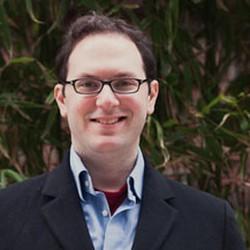Biography
Dr. Golob is a physician scientist with both extensive clinical and research training. He has a background in engineering (Computer Science and Biomedical engineering) and is an enthusiastic teacher of the computational analysis of data. His first bench laboratory research involved gene therapy (adenoviral, AAV, and early lentiviral vectors) and stem cell (mesenchymal and hematopoietic) biology. His doctoral work was in the role of epigenetics in the differentiation of pluripotent stem cells. This worked involved some of the earliest next-generation sequencing and de-novo analysis software design. His post-doctoral research involved the gut microbiome during hematopoietic stem cell transplant. Jonathan first started clinical medicine by training as an emergency medical technician with the Baltimore City Fire Department. He is an infectious disease specialist, further specialized in the care of people with immune dysfunction (with cancer, post-transplant, and others) and infections. He was involved in the University of Michigan response to the COVID-19 pandemic, both providing some of the earliest direct patient care (as an infectious disease specialist) and clinical research (controlled observational studies and randomized clinical trials for novel COVID-19 therapeutics). Dr. Golob was born in the Detroit area. After a brief stint in Baltimore City, he spent nearly twenty years in Seattle, WA. While in Seattle, he wrote a science column for the local alt-weekly The Stranger. He is an avid traveler (pre COVID-19), cheerful home baker (also pre-COVID-19), father, and enjoys the outdoors (particularly cross country skiing in the winter). He enjoys working with, learning from, and mentoring fellow scientists.
Research Interests
My research combines cutting edge techniques in observational clinical trials with highly advanced in-vitro human models of host-microbe interactions. Using my computer science background, I can analyze both publicly available datasets and specimens collected in collaboration with partners in gastroenterology, oncology (and others) to generate hypotheses of how the gut microbiome may affect outcomes. Specifically, one project we have ramping up is to discover how the microbes in the gut (sampled by endoscopy, not inferred from stool) relate to if people with acute severe ulcerative colitis respond to steroids. Once the associations are observed, we have a cutting-edge human intestinal organoid model to test for both causality (can we reproduce our clinical correlates in vitro?) and mechanism. This model allows for live culture of anaerobic microbes (such as those typically found in the human gut) with live organoid-derived human colonic epithelium. The organoid derived epithelium retains the genetic and epigenetic state of the host tissue from which it was derived. Finally, once we have found a causal host-microbe interaction, we have novel manipulations to test in-vitro, such as varying the carbon source available to the microbial community. Finally, the most promising interventions can be tested back in people struggling with disease.
Research Opportunities for Rotating Students
I would be delighted to accept PIBS rotation students who wish to learn advanced organoid-based in-vitro modeling of host-microbe interactions within the gut. These projects can be done in a co-mentoring setting with Dr. Thomas Schmidt.

